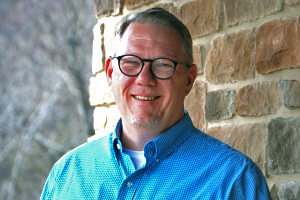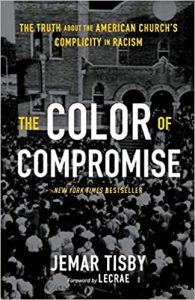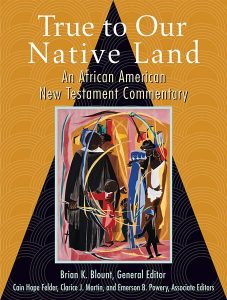by Jeff Wright, Conference Leadership Minister
 A confession is in order at the beginning of this article. I am irredeemably old school. While I own e-readers (“Love and Saint Augustine”, by Hannah Arendt is on my Kindle app right now) and listen to podcasts (I’m working through the final season of West Wing Weekly) and music (try the Hillbilly Thomists on Spotify), I’m still old school. There is something good about holding print, paper, and binding in your hands and engaging in the physical art of reading.
A confession is in order at the beginning of this article. I am irredeemably old school. While I own e-readers (“Love and Saint Augustine”, by Hannah Arendt is on my Kindle app right now) and listen to podcasts (I’m working through the final season of West Wing Weekly) and music (try the Hillbilly Thomists on Spotify), I’m still old school. There is something good about holding print, paper, and binding in your hands and engaging in the physical art of reading.
In the midst of multiple crises, there does not always seem time enough to read. I sometimes find my glasses still on, and a book cradled to my chest when I am awakened at 3:00 am. Books are a sign of joy, in my humble opinion. Even books with hard messages can offer hope when the print, paper, and binding are a physical reminder of the power of the word.
In the past few months, some of the books that have been challenging me are books with the word “color” in the title.
 The first of these, “The Color of Compromise,” by Jemar Tisby (2019, Zondervan Reflective), is a steely-eyed critique of the white church in America. The complicity of how the white church in America is fostering and giving life to systemic racism is explained.
The first of these, “The Color of Compromise,” by Jemar Tisby (2019, Zondervan Reflective), is a steely-eyed critique of the white church in America. The complicity of how the white church in America is fostering and giving life to systemic racism is explained.
A second book of color, “The Color of Money: Black Banks and the Racial Wealth Gap,” by Mehrsa Baradaran (2017, Belknap Press), is a detailed examination into the ways in which credit, the lubrication of capitalism, has been denied to African Americans as a matter of repeated public policy choices at the federal level from the emancipation of slaves until today.
A third book, “The Color of Law,” by Richard Rothstein (2017, Liveright), examines the ways zoning laws were created to form segregated, gerrymandered communities. My colleagues on the City of Riverside (CA) Human Relations Commission (on which I serve as a commissioner) are reading this book together to assess how our own twenty-seven local neighborhoods are victims of such segregationist policies.
It would be (and has been) easy to become completely despondent after reading those books. But two additional books have given me hope.
First, “Rediscipling the White Church: From Cheap Diversity to True Solidarity,” by David W. Swanson (2020, InterVarsity Press), offers the fruits borne of years laboring to truly be a leader of an authentically multicultural church.
 A second book is “True to Our Native Land: An African American New Testament Commentary.” Published by Fortress Press in 2007, Brian K Blount is the General Editor of this good-sized desk volume. I’m not generally a fan of one-volume New Testament commentaries. I think too much gets cut out to make it useful. But I make an exception with this book.
A second book is “True to Our Native Land: An African American New Testament Commentary.” Published by Fortress Press in 2007, Brian K Blount is the General Editor of this good-sized desk volume. I’m not generally a fan of one-volume New Testament commentaries. I think too much gets cut out to make it useful. But I make an exception with this book.
The beautifully written essays are coupled with scholarly depth. The relevant sidebars on the text’s application to the African American condition today make this a book you just have to add to your library.
One word of caution: Do not take this particular commentary to bed to read. It is big enough to hurt when you drop it on your face as you fall asleep.













 Our leadership ministers met the end of March, during what we hope will be the last heavy snowstorm, at
Our leadership ministers met the end of March, during what we hope will be the last heavy snowstorm, at 
 Yvonne Platts was baptized at an early age in the Mennonite church and has grown up at Nueva Vida Norristown New Life. Yvonne serves within her congregation on the Enlarging Our Place in Gods World Leadership Team. Her primary work is with
Yvonne Platts was baptized at an early age in the Mennonite church and has grown up at Nueva Vida Norristown New Life. Yvonne serves within her congregation on the Enlarging Our Place in Gods World Leadership Team. Her primary work is with  Cory Longacre comes to the Conference Board recently finishing his third-and-final three year term on the Souderton Mennonite Church Board where he spent the last three years as chair. Cory grew up at
Cory Longacre comes to the Conference Board recently finishing his third-and-final three year term on the Souderton Mennonite Church Board where he spent the last three years as chair. Cory grew up at  Jeff Wright will serve as a LEADership Minister, specifically working with Franconia Conference’s three congregations in Southern California: Indonesian Community Christian Fellowship, International Worship Church, and Jemaat Kristen Indonesia Anugerah (JKIA or Grace Indonesian Christian Fellowship). Jeff has served in a dual role as pastor of
Jeff Wright will serve as a LEADership Minister, specifically working with Franconia Conference’s three congregations in Southern California: Indonesian Community Christian Fellowship, International Worship Church, and Jemaat Kristen Indonesia Anugerah (JKIA or Grace Indonesian Christian Fellowship). Jeff has served in a dual role as pastor of  Chantelle Todman Moore comes to Franconia Conference as Intercultural Leadership Coach, where she will focus her work with our 15 urban congregations, looking at cultivating next generation leaders, focusing on persons age 15-35. She has also been tasked to think about what it takes for persons of color in ministry leadership to flourish and how that can be cultivated within Franconia congregations.
Chantelle Todman Moore comes to Franconia Conference as Intercultural Leadership Coach, where she will focus her work with our 15 urban congregations, looking at cultivating next generation leaders, focusing on persons age 15-35. She has also been tasked to think about what it takes for persons of color in ministry leadership to flourish and how that can be cultivated within Franconia congregations. Marta Castillo is not new to the Franconia team, but will be increasing her time. After serving almost five years on the Conference Board, Marta joined Franconia Conference as a LEADership Minister in in 2016, while simultaneously serving as co-pastor at Nueva Vida Norristown New Life. She stepped away from the position at Nueva Vida in December, as she felt the Spirit leading her elsewhere. At the time she did not know that “elsewhere” would include increased time with Franconia Conference. The Conference is grateful to have Marta move into the role of LEADership Minister of Intercultural Formation. The daughter of Franconia Conference-rooted mission workers, she has been shaped by all four of the linguistic cultures in Franconia Conference, growing up in both Vietnam and Indonesia. While being a primary English speaker, she lives in a bilingual family and community of English/Spanish speakers.
Marta Castillo is not new to the Franconia team, but will be increasing her time. After serving almost five years on the Conference Board, Marta joined Franconia Conference as a LEADership Minister in in 2016, while simultaneously serving as co-pastor at Nueva Vida Norristown New Life. She stepped away from the position at Nueva Vida in December, as she felt the Spirit leading her elsewhere. At the time she did not know that “elsewhere” would include increased time with Franconia Conference. The Conference is grateful to have Marta move into the role of LEADership Minister of Intercultural Formation. The daughter of Franconia Conference-rooted mission workers, she has been shaped by all four of the linguistic cultures in Franconia Conference, growing up in both Vietnam and Indonesia. While being a primary English speaker, she lives in a bilingual family and community of English/Spanish speakers.